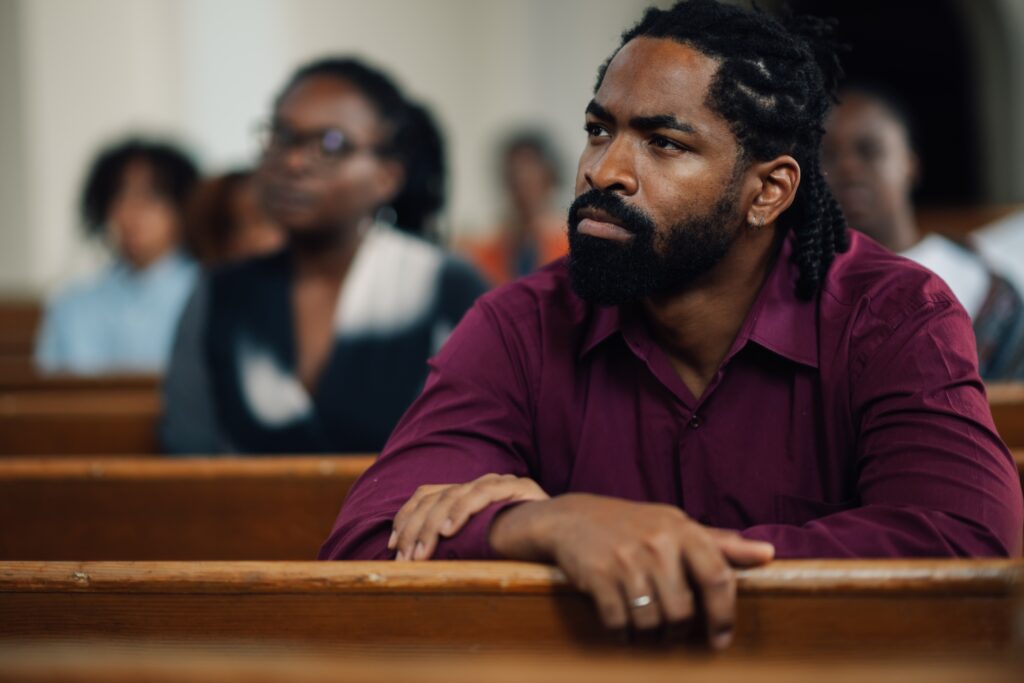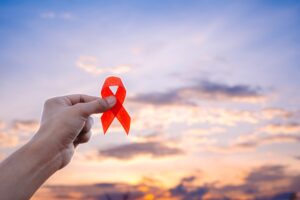The holidays can be tough for anyone dealing with religious trauma, but for LGBTQ people, it can feel even harder. The season often brings feelings of rejection—like being excluded by family or faith communities—or triggers painful memories of being told your identity is wrong. Family dynamics can add stress, especially when loved ones hold beliefs that conflict with who you are.
Even so, it’s possible to approach the season in a way that feels better for you. With some thoughtful steps, you can find moments of comfort and even joy. Read on for 7 ways to make the holidays your own.
Get help this holiday season. Call La Fuente Hollywood Treatment Center at 323.464. 2947.
What Is Religious Trauma?
Religious trauma refers to the lasting physical, emotional, or psychological harm that results from negative religious experiences.
While religion can often be a source of comfort, guidance, and connection, it can also cause harm when teachings, practices, or leaders create fear, shame, or a sense of control over people’s lives.
This harm can come from specific events, like being publicly shamed or experiencing abuse, but it can also build up slowly over time.
Many people experience religious trauma from growing up in environments where harmful messages are frequently reinforced, leaving them feeling pressured to conform or losing a sense of their own identity.
Religious trauma can show up in a variety of ways, including:
- Overwhelming feelings of guilt or shame
- Difficulty trusting yourself or others
- Struggles with finding meaning or purpose outside of a religious framework
- A loss of autonomy or a diminished sense of self-worth
- A persistent feeling of being unsafe, either emotionally or physically
When Faith Hurts: Religious Trauma and the LGBTQ Community
While religious trauma affects many types of people, it can feel especially intense for members of the LGBTQ community. This is because the harm often targets the core of their identity.
The rejection they experience isn’t just an abstract idea—it often takes deeply personal forms, such as:
- Being excluded from leadership roles because of their LGBTQ identity
- Hearing that LGBTQ people are “eternally condemned” or spiritually unworthy
- Having their wedding ignored or refused by religious leaders
- Being told that their LGBTQ identity comes from demonic possession
- Being forced into harmful practices like conversion “therapy”
- Losing connections with family, friends, and their community after coming out or being outed.
There isn’t a lot of research on how religious trauma affects LGBTQ people, but what we do know is troubling. A 2022 study found that LGBTQ people who experience religious trauma are more likely to face serious challenges like depression, anxiety, substance abuse, homelessness, and even suicidal thoughts.
Much of this pain stems from the loss of vital support systems, like family, friends, and community. This rejection often leads to feelings of isolation and hopelessness.
Adding to this burden, many LGBTQ people are told they must choose between their faith and their identity. Some Christian traditions treat being LGBTQ and being a person of faith as opposites, causing people to feel they must give up one to keep the other. This false choice makes the trauma even harder to bear, as it creates conflict between two deeply personal parts of who they are.
Why the Holidays Are Challenging for LGBTQ People with Religious Trauma
The holiday season can be especially hard for LGBTQ people with religious trauma. It often brings back painful memories of rejection or control hidden behind festive traditions. Old teachings, rituals, or verses might surface unexpectedly, triggering feelings of shame, sadness, or anger.
Navigating family dynamics adds another layer of stress. LGBTQ people may feel unsure about attending family gatherings, going to church services, or even participating in holiday traditions like listening to Christmas music. They might feel torn between wanting to take part in traditions and needing to protect themselves from past hurt.
This emotional conflict can make the holidays a confusing mix of joy, loss, connection, and sadness. The complexity of these feelings leaves many people struggling to figure out what to celebrate or how to find comfort in the season without feeling isolated or overwhelmed.
7 Ways to Reclaim Joy During the Holidays
Experiencing religious trauma is deeply challenging, and healing is often a lifelong process. But that doesn’t mean you have to avoid or resent the holiday season entirely. With intention and self-care, it’s possible to reclaim the season and create moments of joy and connection on your own terms.
Here are 7 ways to get started:
- Recognize and honor your feelings: Acknowledge emotions like sadness, grief, loss, anger, or confusion without judgment. Allow yourself the space to process these feelings and accept them as part of your experience.
- Engage in therapeutic practices: Take time for self-care activities that help you feel centered. This might include journaling, meditation, deep breathing exercises, or carving out quiet moments to recharge amidst holiday busyness.
- Seek professional or community support: If you’re struggling, reach out to a therapist or support group. Organizations like Recovering from Religion offer local chapters, as well as chat and phone lines, to support people deconstructing their faith or coping with religious trauma.
- Embrace secular or alternative holiday traditions: Redefine the holidays in a way that feels meaningful to you. Spend time with non-religious friends or celebrate something unrelated to religion, like the winter solstice or a personal tradition. Some people enjoy quirky celebrations like Festivus or focus on the season itself—cozy nights, winter foods, and gatherings with chosen family.
- Stay busy with creative or fulfilling activities: Keep your mind occupied with things that bring you comfort or joy. Creative outlets like painting, music, or crafting can help channel emotions. Alternatively, plan activities like:
- Board games, video games, or online games
- Volunteering at a local organization
- Home movie marathon
- Throwing a small party or get-together
- Taking a vacation to explore new surroundings
6. Manage family expectations: Set clear expectations with family about your holiday plans. Let them know when and where you’ll join festivities, and keep responses simple to avoid arguments or guilt trips. For example: “Sorry, I won’t be able to make it to Mass. I’ll meet you at the house later.”
7. Set boundaries to protect your mental health: Give yourself permission to decline invitations or step away from overwhelming situations. Prioritize your well-being, and remember that true friends and loved ones will respect your need for self-care.
La Fuente: Your Partner in Healing During the Holidays
For many LGBTQ people, the stress, anxiety, and pain caused by religious trauma can lead to using substances as a way to cope. While the holidays can feel overwhelming, there is hope and support available.
La Fuente offers an LGBTQ-affirmative substance treatment program where you are seen, affirmed, and welcomed just as you are. You don’t have to face these challenges alone. Our team is here to help you heal and find peace this holiday season and beyond.
LGBTQ-affirmative substance use treatment is just a call away: 323.464. 2947.




